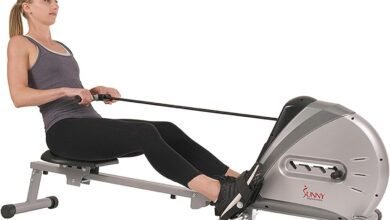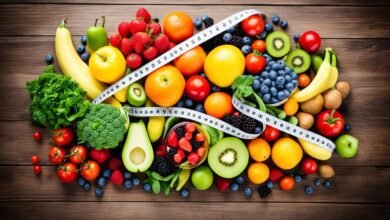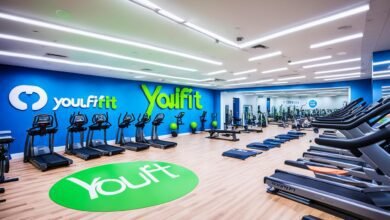Healthy Eating Habits to Enhance Your Fitness Results

The path to achieving your fitness goals is not solely dependent on how hard you work out; it’s equally important to pay close attention to your diet. Healthy eating habits play a pivotal role in enhancing your fitness results. Whether you’re aiming to build muscle, lose weight, or simply maintain a fit and active lifestyle, what you consume can make or break your progress.
In this comprehensive article, we will delve deep into the seven essential healthy eating habits that can significantly enhance your fitness results. These habits are based on a foundation of science, balanced nutrition, and expert advice. By adopting these habits, you can fuel your body for optimal performance and reach your fitness goals faster and more efficiently.
Mindful Eating
Let’s begin with the foundation of all healthy eating habits – mindful eating. Mindful eating is a practice that encourages you to be fully present during your meals, allowing you to savor the experience of eating while being in tune with your body’s hunger and fullness cues.
In today’s fast-paced world, many of us consume our meals on the go, in front of screens, or while multitasking. This can lead to overeating and poor food choices. Mindful eating, on the other hand, promotes a more conscious and intuitive approach to nourishing your body.
Here’s how to cultivate mindful eating habits:
Slow Down: Eating too quickly can lead to overconsumption because your body doesn’t have enough time to signal fullness. Take your time, chew your food thoroughly, and savor each bite.
Eliminate Distractions: Put away your phone, turn off the TV, and create a serene eating environment. Focusing solely on your meal will help you enjoy it more and prevent overeating.
Listen to Your Body: Pay attention to your body’s hunger and fullness cues. Eat when you’re hungry and stop when you’re satisfied, not stuffed. Avoid eating out of boredom or stress.
Appreciate Your Food: Take a moment to appreciate the flavors, textures, and aromas of your food. This can enhance your satisfaction and make you less likely to overindulge.
Portion Control: Be mindful of portion sizes. Use smaller plates to help control your portions and prevent overeating.
Balanced Macronutrient Intake
For a well-rounded and effective fitness journey, it’s essential to focus on a balanced macronutrient intake. Macronutrients, often referred to as macros, consist of three key components: carbohydrates, proteins, and fats. Each of these macronutrients plays a unique role in fueling your body and impacting your fitness results.
Carbohydrates: Carbohydrates are the body’s primary source of energy. They are essential for workouts and overall physical activity. Whole grains, fruits, vegetables, and legumes provide complex carbohydrates that release energy steadily, supporting sustained performance.
Proteins: Proteins are crucial for muscle repair and growth. They also help in satiety, making you feel fuller for longer. Include lean sources of protein such as poultry, fish, lean meats, tofu, and legumes in your diet.
Fats: Healthy fats, such as those found in avocados, nuts, seeds, and olive oil, are essential for overall health and energy. They provide a concentrated source of calories and are particularly valuable for athletes engaging in endurance activities.
A balanced diet that includes an appropriate distribution of these macronutrients is essential for enhancing your fitness results. Consult with a registered dietitian or nutritionist to determine your specific macronutrient needs based on your fitness goals, body type, and activity level.
Hydration

Proper hydration is often underestimated in its role in fitness and overall health. Staying adequately hydrated is essential for optimal physical performance, as water is involved in nearly every bodily function, from digestion to temperature regulation.
Dehydration can lead to decreased energy levels, muscle cramps, and impaired cognitive function. To ensure you stay well-hydrated and enhance your fitness results, follow these guidelines:
Drink Water Regularly: Sip water throughout the day, not just when you feel thirsty. By the time you feel thirsty, you may already be slightly dehydrated.
Consider Electrolytes: If you engage in intense workouts or sweat profusely, consider adding electrolyte-rich beverages or supplements to replenish the minerals lost through sweat.
Monitor Urine Color: Pay attention to the color of your urine. Pale yellow or straw-colored urine is a sign of good hydration, while dark yellow or amber-colored urine may indicate dehydration.
Individual Needs: The amount of water you need can vary based on factors like climate, activity level, and body size. Consult with a healthcare professional to determine your specific hydration needs.
Pre- and Post-Workout Nutrition
Fueling your body before and after your workouts is crucial for maximizing performance and recovery. What you eat during these periods can significantly impact your fitness results.
Pre-Workout Nutrition:
Before your workout, aim to consume a balanced meal or snack that includes carbohydrates, protein, and a small amount of healthy fats. Carbohydrates provide the energy needed for your workout, while protein supports muscle repair and growth.
Consider these pre-workout nutrition tips:
Timing: Eat a meal or snack containing complex carbohydrates and lean protein 1-2 hours before your workout to ensure your body has sufficient energy to perform at its best.
Hydration: Ensure you’re well-hydrated before starting your workout.
Example Pre-Workout Snack: A banana with almond butter or a Greek yogurt parfait with berries and honey can be excellent options.
Post-Workout Nutrition:
After your workout, it’s crucial to refuel your body to aid in recovery and muscle repair. Consuming a combination of carbohydrates and protein within the first-hour post-exercise is recommended.
Consider these post-workout nutrition tips:
Timing: Aim to eat your post-workout meal or snack within 1-2 hours of completing your workout to optimize recovery.
Protein: Including a source of protein in your post-workout meal is vital for muscle recovery. Lean meats, tofu, or a protein shake are excellent options.
Carbohydrates: Carbohydrates are essential to replenish glycogen stores in your muscles. Opt for complex carbohydrates like brown rice, sweet potatoes, or whole-grain pasta.
Hydration: Rehydrate with water to replace fluids lost during your workout.
Whole Foods and Nutrient-Dense Choices

When enhancing your fitness results through healthy eating, it’s important to focus on whole foods and nutrient-dense choices. Whole foods are those that are minimally processed and retain their natural nutritional value. Nutrient-dense foods provide a high concentration of vitamins, minerals, and other beneficial compounds with relatively few calories.
200 eBooks Mega Collection | Digital – Ebooks
Here are some guidelines to help you make nutrient-dense food choices:
Fruits and Vegetables: Incorporate a variety of colorful fruits and vegetables into your diet to ensure you get a wide range of vitamins and minerals.
Whole Grains: Choose whole grains like quinoa, brown rice, and whole-grain bread over refined grains to increase fiber intake and stabilize blood sugar.
Lean Proteins: Opt for lean sources of protein such as chicken, turkey, fish, and legumes. These options are lower in saturated fats and provide essential amino acids.
Healthy Fats: Include sources of healthy fats, such as avocados, nuts, seeds, and olive oil, to support overall health and energy.
Limit Added Sugars: Minimize your intake of added sugars found in sugary snacks, desserts, and sugary beverages. Instead, satisfy your sweet cravings with whole fruit.
Portion Control: Pay attention to portion sizes to avoid overeating, even when consuming nutrient-dense foods.
Balanced Meals: Create balanced meals that include a combination of macronutrients to provide the necessary nutrients for your body.
Meal Planning and Preparation
One of the keys to successfully adopting healthy eating habits to enhance your fitness results is effective meal planning and preparation. Meal planning allows you to take control of your nutrition, make thoughtful choices, and avoid impulsive, less healthy options.
Here’s how to get started with meal planning and preparation:
Set Realistic Goals: Determine your fitness goals and create a meal plan that aligns with them. Whether you’re aiming to lose weight, build muscle, or improve athletic performance, tailor your meals accordingly.
Weekly Planning: Plan your meals for the week ahead. This includes breakfast, lunch, dinner, and snacks. Having a clear plan reduces the temptation to make unhealthy choices on a whim.
Grocery List: Create a shopping list based on your meal plan to ensure you have all the necessary ingredients on hand.
Batch Cooking: Consider batch cooking on a designated day of the week. Prepare larger quantities of staple foods like grains, proteins, and vegetables, and store them for easy access during the week.
Portion Control: Divide meals into portion-sized containers to prevent overeating and make it easier to grab a healthy option when you’re busy.
Variety: Plan for variety in your meals to prevent boredom and ensure you get a wide range of nutrients.
Flexibility: Be adaptable with your meal plan. Life can be unpredictable, so it’s important to be flexible and make adjustments when necessary.
Supplements and Nutritional Support
While a well-balanced diet should provide most of the nutrients you need for your fitness journey, there are instances where supplements or nutritional support may be beneficial. Consult with a healthcare professional or registered dietitian before adding any supplements to your diet to ensure they are appropriate for your specific needs.
Here are some common supplements that may enhance your fitness results:
- Protein Supplements: Protein powders, such as whey, casein, or plant-based options like pea or rice protein, can be useful for individuals who struggle to meet their protein needs through food alone.
- Multivitamins: A high-quality multivitamin can provide a safety net of essential vitamins and minerals, especially if you have dietary restrictions or limited access to certain foods.
- Omega-3 Fatty Acids: Omega-3 supplements, often derived from fish oil or algae, can be beneficial for heart health, reducing inflammation, and supporting overall wellness.
- Creatine: Creatine is a popular supplement for athletes and bodybuilders. It can enhance strength and muscle gains, particularly in high-intensity, short-duration activities.
- BCAAs (Branched-Chain Amino Acids): BCAAs, which include leucine, isoleucine, and valine, are amino acids that can help reduce muscle soreness and support muscle recovery, especially in endurance athletes.
- Vitamin D: Many people have insufficient levels of vitamin D, which is essential for bone health and overall well-being. A supplement can help if you have limited sun exposure.
- Electrolyte Supplements: If you engage in intense physical activities, electrolyte supplements can help maintain proper fluid balance and prevent dehydration.
Conclusion
Achieving your fitness goals involves more than just hitting the gym or going for a run. Your diet plays a crucial role in determining your success. By adopting these seven healthy eating habits, you can enhance your fitness results, whether you’re looking to build muscle, lose weight, or simply maintain an active and healthy lifestyle. Achieving your fitness goals is not solely about exercise; it’s also about adopting and maintaining healthy eating habits. Balancing your macronutrients, practicing portion control, eating a variety of nutrient-dense foods, staying hydrated, planning your meals and snacks, minimizing processed and sugary foods, and listening to your body are all integral to your success.
These seven habits will not only enhance your fitness results but also contribute to your overall well-being. Remember that progress takes time and patience, and it’s essential to find an eating pattern that works for you and is sustainable in the long term. By embracing these healthy eating habits, you’ll be on the right path to a healthier, fitter you.
Mindful Eating: Cultivate a mindful eating practice to savor your meals and listen to your body’s hunger and fullness cues.
Balanced Macronutrient Intake: Consume a balanced distribution of carbohydrates, proteins, and fats to fuel your body effectively.
Hydration: Stay well-hydrated to optimize physical performance and overall well-being.
Pre- and Post-Workout Nutrition: Fuel your body before and after workouts with the right combination of macronutrients.
Whole Foods and Nutrient-Dense Choices: Focus on nutrient-dense, whole foods to provide your body with essential vitamins, minerals, and other beneficial compounds.
Meal Planning and Preparation: Plan your meals in advance and prepare nutritious options to avoid impulsive, unhealthy choices.
Supplements and Nutritional Support: Consider supplements when necessary, but always consult with a healthcare professional or registered dietitian for personalized guidance.
By adopting these habits and making them a consistent part of your daily life, you’ll be better equipped to achieve your fitness goals and maintain a healthy and active lifestyle. Remember that individual needs vary, so seek personalized guidance from a healthcare professional or registered dietitian to tailor your nutrition plan to your unique circumstances. With the right approach to healthy eating, you can unlock your full fitness potential and enjoy the many benefits of a strong and vibrant body.




